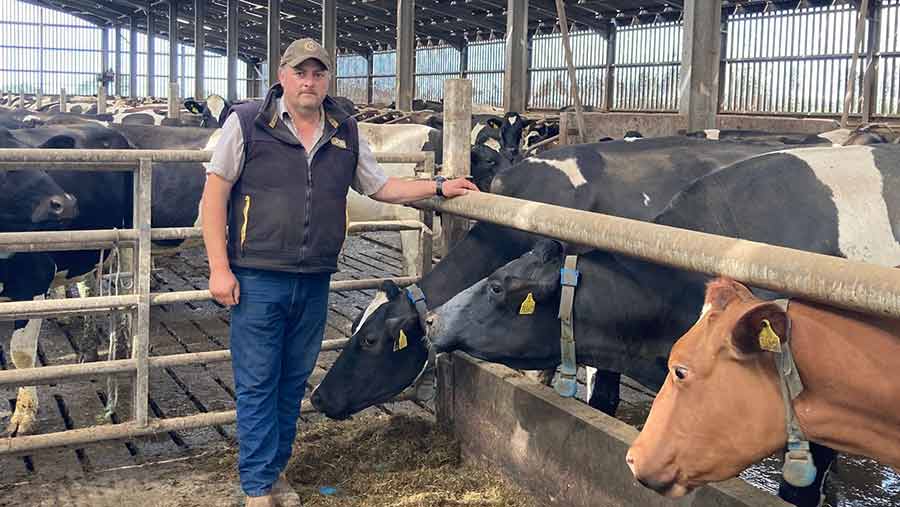TB-hit farmer calls for targeted badger cull in Wales
 Steve Evans says the breakdown could cost his business £500,000 © Steve Evans
Steve Evans says the breakdown could cost his business £500,000 © Steve Evans A Pembrokeshire dairy farmer who suffered a serious TB herd breakdown is calling for the Welsh government to introduce a targeted badger cull to tackle this “horrific” disease.
Fourth-generation farmer Steve Evans runs a herd of 480 milking cows on an autumn block-calving system capable of producing 8,000 litres a year.
He said his dairy herd was clear of bovine TB for five years until routine testing in July revealed 28 reactors on his farm in Haverfordwest.
See also: Refreshed TB programme announced for Wales
The infected cows, of which 26 were in-calf, were taken off his farm on 18 July to be humanely slaughtered. The farmer said the experience was “absolutely dreadful”.
Mr Evans estimates the breakdown will cost his business £500,000 over the next year, which includes a large compensation bill for taxpayers.
“We could be staring down the barrel,” he told Farmers Weekly. “We have got 57 inconclusive reactors [IRs], plus the ministry has decided to rest another 26 IRs dating back to 2020.
“There’s 83 cows that are IRs and there’s utter confusion over whether they are going to be re-tested, whether they are staying or going. In the meantime, I’m on lockdown and we’re about to start calving. It’s the perfect storm.”
Mr Evans said this situation, coupled with low milk prices, was putting serious financial strain on his business and also damaging his mental health. “It’s frustrating, upsetting and causing sleepless nights. I could potentially lose 100 cows,” he added.
Biosecurity measures
He has done everything possible to tackle biosecurity on his farm, including fencing off latrines and installing badger-proof fencing. But he feels powerless to protect his grazing herd from mixing with badgers and becoming infected.
At the last count in 2017, there were 17 badger setts on his farm and the badger population had grown significantly since then, Mr Evans said.
He believes the Welsh government has a “moral obligation” to follow the example in England and introduce culling in Wales in areas where there is evidence the disease reservoir is out of control.
“Pembrokeshire is well documented as being the TB hotspot in western Europe,” he said.
“There’s a hell of a lot of dairy cows and woodland here. It’s got to happen, as there’s no way that agriculture can move on.”
Government response
A Welsh government spokesman said: “Our Programme for Government makes clear we will not cull badgers, as there is no evidence that this would significantly help our goal of TB eradication.
“However, there are ways farmers can limit the introduction of TB into their herds, through good biosecurity.
“For example, measures may tackle badger and cattle contact or reduce the risk of buying-in infected cattle. It is important for farmers to discuss such measures with their vet.
“We have also been clear government cannot do this alone, and partnership working with our farmers and vets is crucial to reach our shared goal of a TB-free Wales.”
